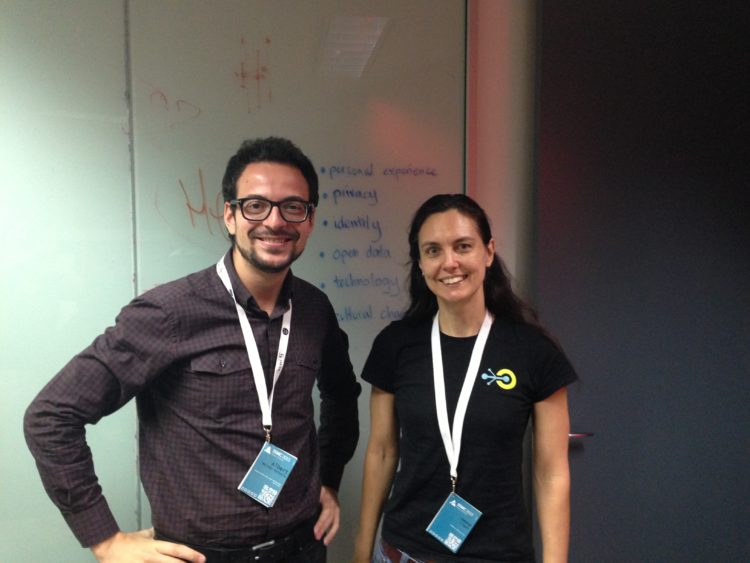 Another appointment of CEDAR in Sydney was to meet Ingrid Mason and Anne Cregan at Intersect Australia. Intersect is Australia’s largest full-service eResearch support agency.
Another appointment of CEDAR in Sydney was to meet Ingrid Mason and Anne Cregan at Intersect Australia. Intersect is Australia’s largest full-service eResearch support agency.
One project at Intersect is the Humanities Network Infrastructure (HuNI). The project aims at bringing together multiple humanities datasets, extracting structured information from them and increasing their linkage and accessibility. It has lots of similarities with the Computational Humanities Programme of the KNAW.
All of us put our research on the table. Ingrid made a very nice description on work she did with librarians and archivists, and the issues they faced on classifying information (especially on automatically extracted classifications). Anne went deep on issues about the always necessary fine-grained semantics of such classifications. Albert explained the challenges we are facing in CEDAR and the eHumanities group, and how these nicely relate with the ones at Intersect and HuNI.
The discussion went deeper, until the topic went back to data comparability (as it did in the SemStats workshop) and how semantic technologies can help in the humanities, librarians and archivists worlds. At some point we remembered that “there’s no true modelling” for such classifications, as we recalled that biologists, which are maybe the most ancient classifiers in history, are unable to reach unanimity between the ontology of current species (that is, the species as they are today) and the ontology of evolution (that is, the species as they have been over time). We also discussed library standards and methodology of research, identifying the extremes of “just” doing science, on the one hand, and “just” providing services to end users, on the other. We agreed, anyhow, that research needs to solve real world problems instead of artificially crafted ones.
The discussion kept flowing towards old authors that are always good to read, and by saying goodbye we realised we have some new friends in Intersect Australia.
